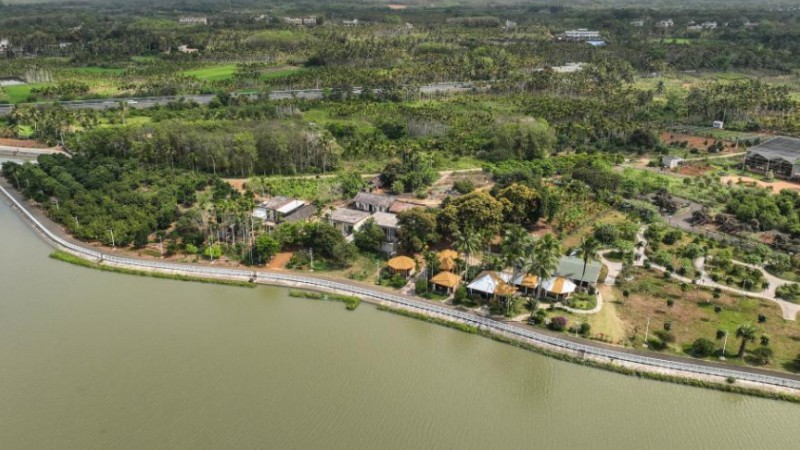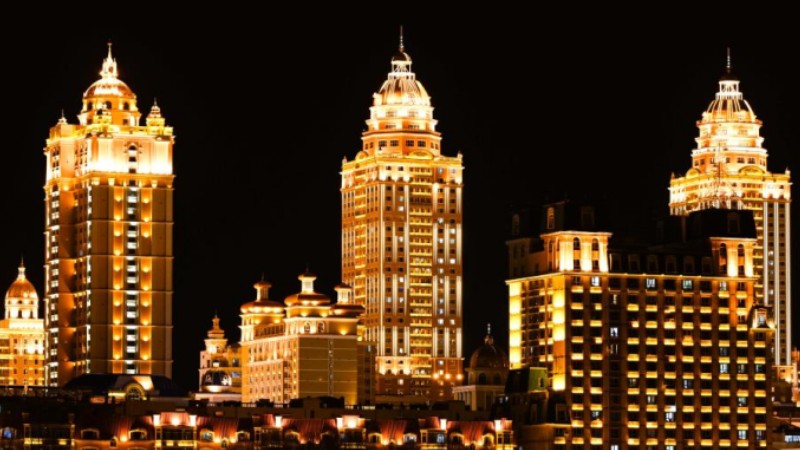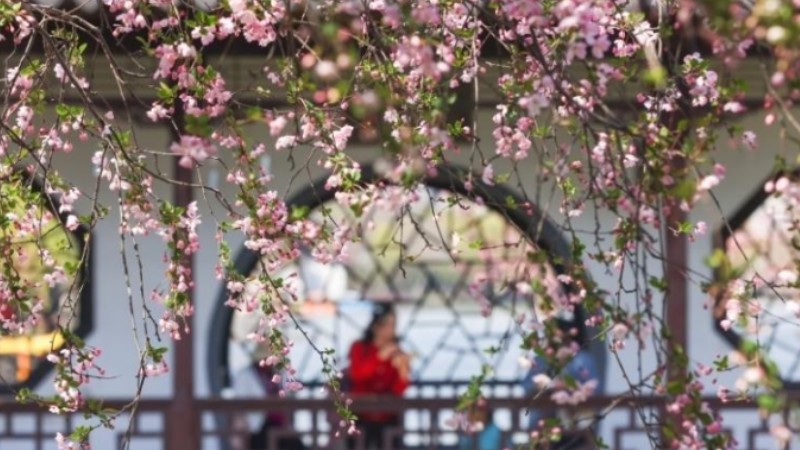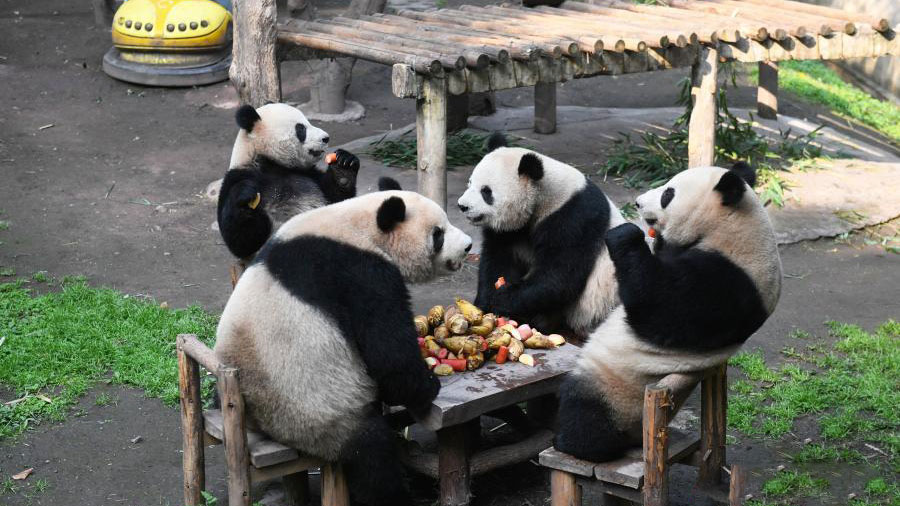Local flavor adds spice to tourism
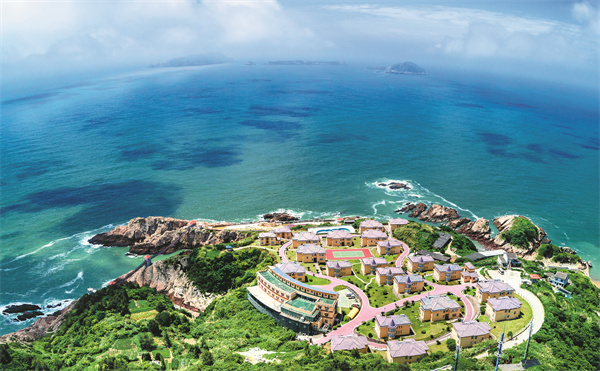
The Dachen Islands have transformed from barren land into a popular, eco-friendly tourist area in Taizhou.[Photo provided by Ran Minlu/For China Daily]
Spring is the best time to visit Jiangnan, the regions around the lower reaches of the Yangtze River, for picturesque views, rich culture, delicious food and warm weather. Among the top venues is Taizhou city in East China's Zhejiang province, an off-the-beaten-path destination that offers an authentic Jiangnan travel experience.
It's about three and two hours by high-speed train, respectively, from Shanghai and Hangzhou, capital city of Zhejiang.
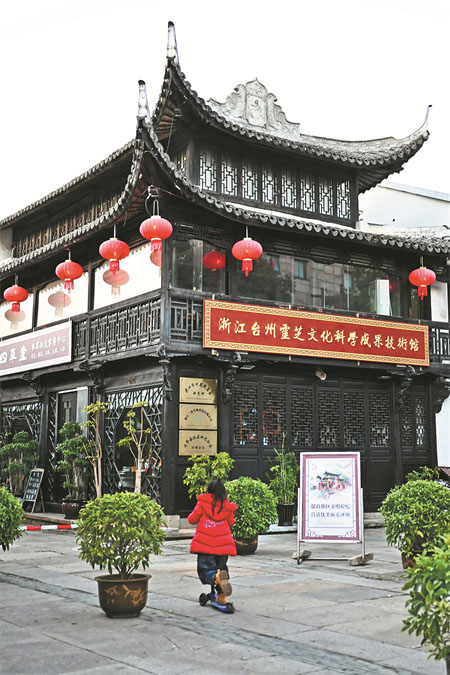
Taizhou city in East China's Zhejiang province has a lot to offer to visitors who seek outdoor activities and historical sites.[Photo provided by Ran Minlu/For China Daily]
Outdoor enthusiasts can go hiking at the Tiantai Mountain and Shenxianju, which literally means "dwelling for immortals", to enjoy the natural scenery and Buddhism culture.
They can also explore the city's downtown Jiaojiang district for culture, island life and dining experience.
To know about the city's culture and history, the best place to visit is undoubtedly the Taizhou Museum. Its rich collections showcase local fishing tradition, boat manufacturing, intangible cultural heritage and folk customs.
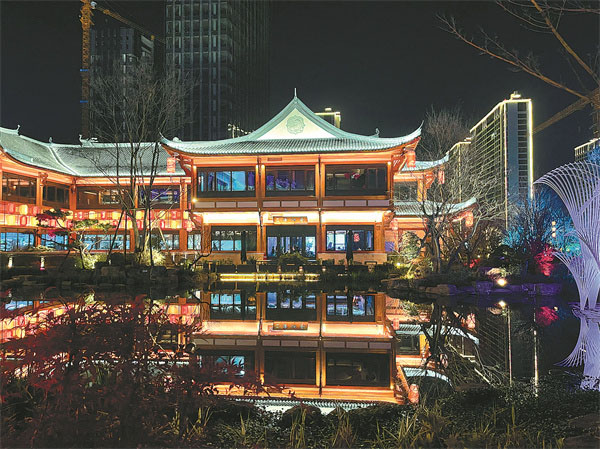
Taizhou city in East China's Zhejiang province has a lot to offer to visitors who seek outdoor activities and historical sites.[Photo provided by Ran Minlu/For China Daily]
In 1906, when French Catholic missionaries came to Haimen (today's Jiaojiang), they taught the local church's nuns and orphans the Western embroidery technique of cutwork and drawnwork. That's how Taizhou embroidery was developed, integrating the essence of the East and the West.
At the Taisilk Embroidery Museum, tourists can see an old embroidery item from the church. Taizhou embroidery experienced its heyday in the 1990s, when local factories made articles of daily use, such as quilt covers and table clothes, as well as clothing, including pajamas, shirts and skirts.
The craft is also used in today's cultural creative products, with exquisite patterns on silk items.
"To better promote Taizhou embroidery in the market, it's essential to develop fashionable products of different varieties, integrating the technique into people's daily lives in a practical way," says Lin Xia, an inheritor of the Zhejiang provincial intangible cultural heritage.
Located downtown, the 1-kilometer-long Jiazhi ancient street is lined up with more than 30 old buildings, such as pawnshops and taverns, which have been repaired to their original state in accordance with strict building standards.
The ancient components were numbered, drawn and dismantled, while three-dimensional architecture models were made at the same time to guide the repair later.
The prosperity of the street dates back to the Yuan Dynasty (1271-1368), as a bustling hub to distribute various goods due to the marine industry.
It's also the place of origin of a tradition around da shu (major heat) of the 24 solar terms of the year, when the local fisherfolk put offering to the divine on a boat, hoping to dispel disease and disaster.
Today, the street is open again to the locals and tourists after renovation, with more businesses to be settled in to boost the city's night economy.
The Taizhou outlet of Dayin Bookmall, a renowned bookstore chain from Shanghai, opened last year on the street in a traditional Chinese-style building with cutting-edge designs.
While the first floor is a commercial bookstore selling books and cultural creative products, the second floor serves as a public library.
Zhongshuge, a chain bookstore startup known for its interior design, has also opened a branch in Jiaojiang district, with inspiration from the city's landmarks, such as the Tiantai Mountain and dotted islands.
With reflections on the floor, the bookshelves arranged in rows are like waterfalls and mountain forests. Bathed in warm sunshine, visitors can spend some time on reading, sipping coffee and joining activities, such as cultural salons and book releases.
The Dachen Islands, which used to be an essential spot along the ancient Maritime Silk Road, have become a Red tourism destination. The eco-friendly islands have made the best use of the rich wind and wave energy to power the whole area.
After the end of War of Liberation (1946-49), defeated Kuomintang troops held onto Dachen. In 1955, Chiang Ching-kuo, the eldest son of Chiang Kai-shek, chief of Kuomintang, came to the islands to lead the troops retreating from the mainland after losing the battle with the People's Liberation Army.
From 1956 to 1960, 467 young volunteers from Zhejiang arrived at Dachen to cultivate barren land and rebuild the islands, and such indomitable spirit is still encouraging the current residents of Taizhou.
Nowadays, tourists can taste the fresh seafood from the East China Sea, go camping, join colorful activities on the islands and spend a night at a peaceful fishing village.
They can enjoy the beauty of the coastline as well as precipitous cliffs and visit historical places, such as ruins of the battlefield and the old residence of Chiang Ching-kuo.
Over the years, the local islanders have also improved their lives greatly due to the developing tourism, engaging in the dining and accommodation sectors.
Guided by the village cadres, many fishermen have changed career to raise fish in captivity, which both increases their income and protects the ecology.
Foodies can also sample the delicious street food in Jiaojiang district.
Ginger soup noodle is popular street food in the city. It's made from dried ginger or fresh ginger juice. The ginger is first boiled with yellow rice wine before drying.
Another popular ginger dish is steamed eggs mixed with ginger juice, yellow rice wine and brown sugar, sprayed with a handful of walnuts. The dessert satisfies your taste buds with a bite of pungent, spicy and sweet flavor.
The district organizes regular culture and music events. At the downtown's square, there are young bands singing on the grass for audience, who can rest in their own camps.
The city has several pianos, donated by kindhearted people, arranged at different public places, and anyone can have a try free of charge. Don't hesitate to show your talent if you happen to see one.
Photos
Related Stories
- Diversified tourism products stimulate new demands in China
- Tax departments boost recovery of flower-themed tourism in C China's Hunan
- Recovering China outbound, inbound travel boosting global tourism market
- Nepal hopes for rebounding tourism with more Chinese arrivals expected
- China's outbound tour groups to boost global tourism recovery
Copyright © 2023 People's Daily Online. All Rights Reserved.






